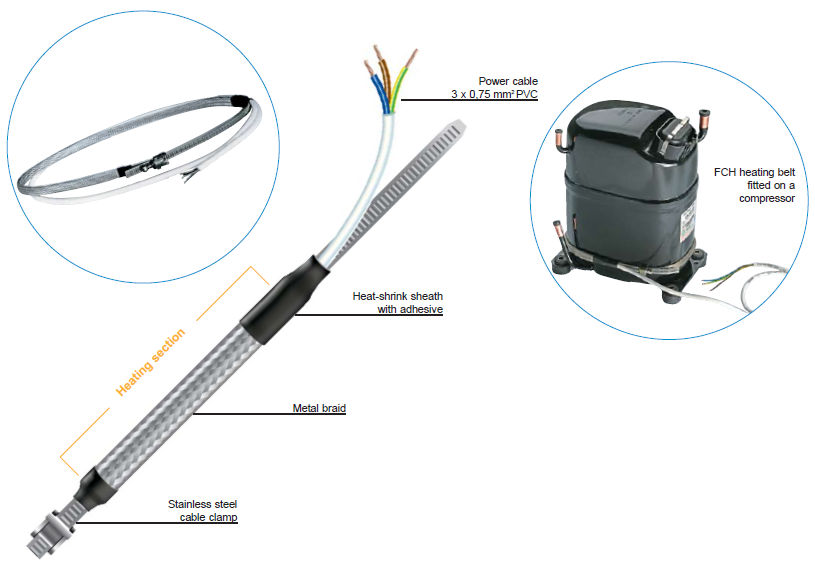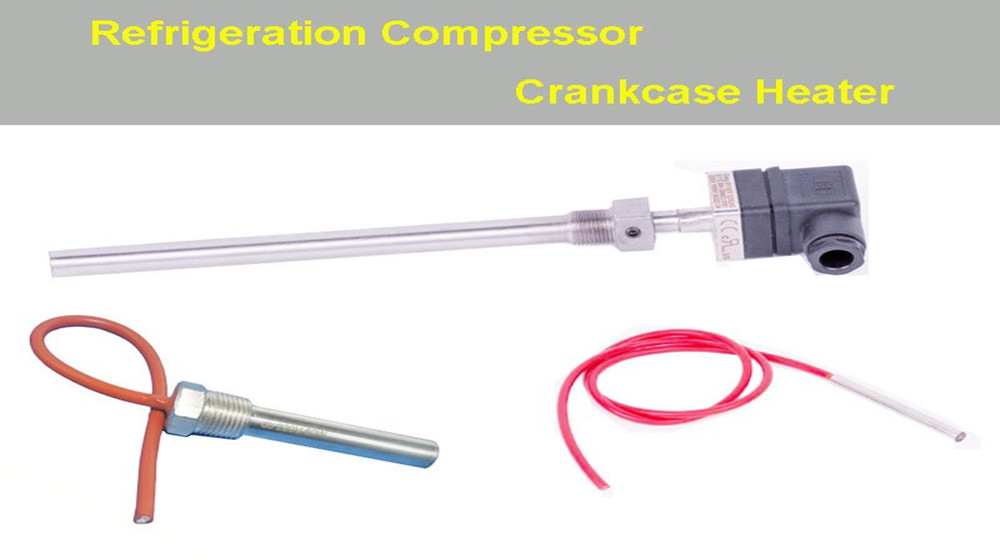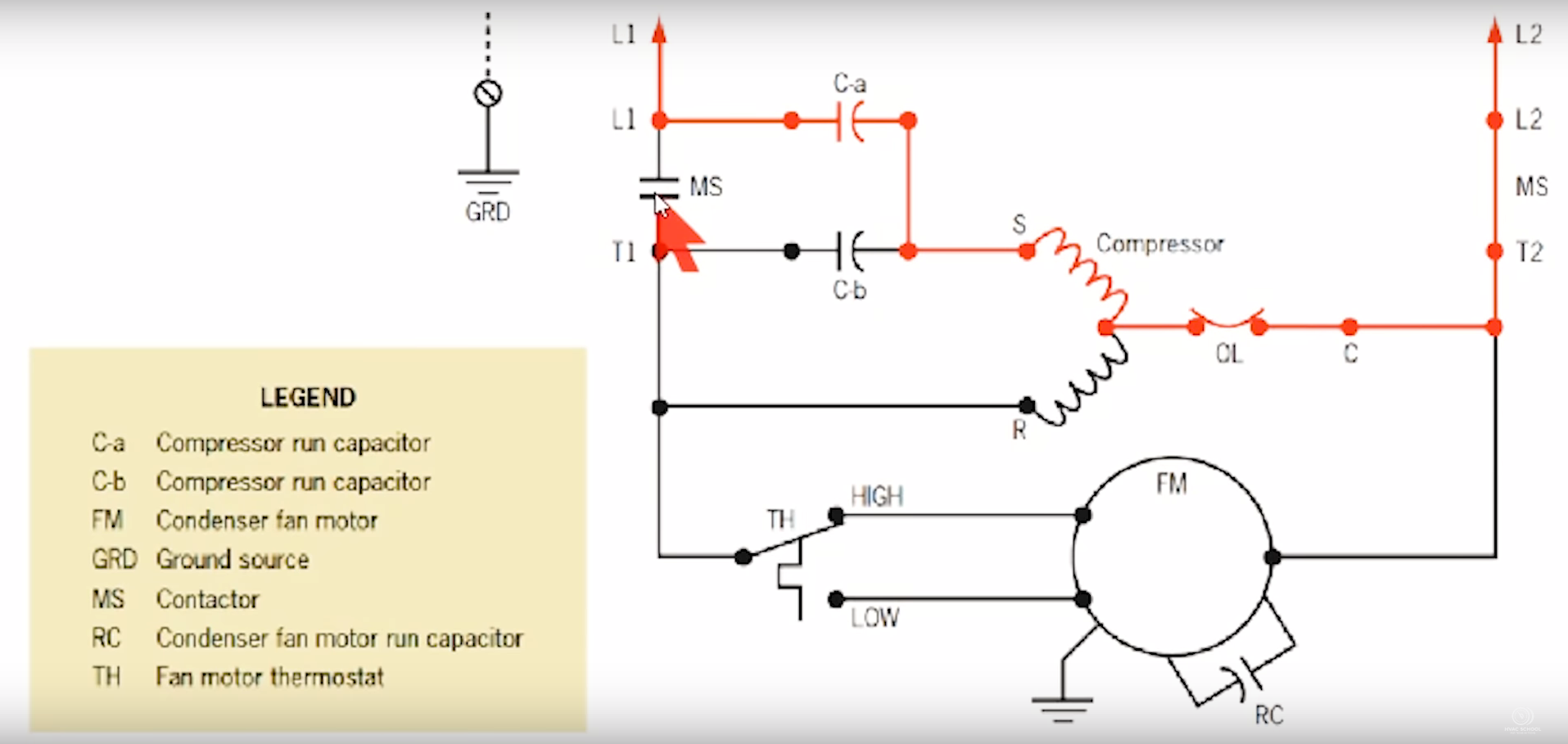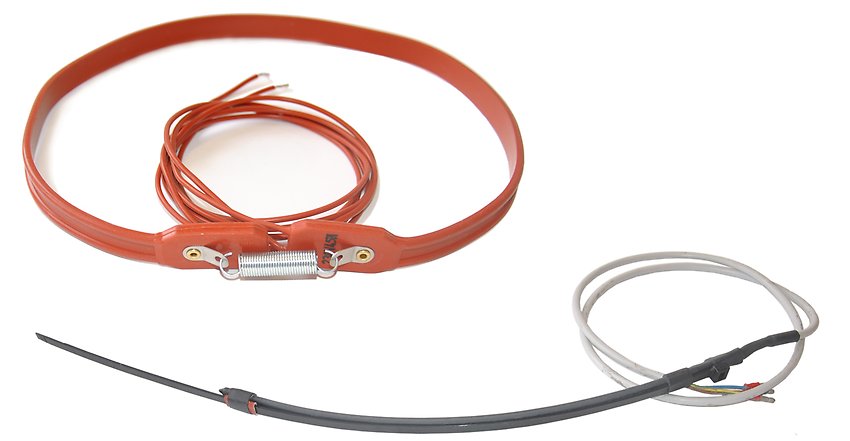The Crankcase Heater Protects The Compressor On Startup By

The Unsung Hero: How a Crankcase Heater Safeguards Your HVAC Compressor
When investing in a new heating or cooling system, the focus often lands on headline features like SEER ratings and smart thermostats. However, one crucial component that ensures the longevity and reliability of your HVAC unit often goes unnoticed: the crankcase heater.
This seemingly simple device plays a vital role in protecting the heart of your system – the compressor – during startup. Understanding its function and benefits can help you make a more informed decision when selecting a new HVAC system, whether you're a homeowner, real estate investor, or a contractor advising clients.
What is a Crankcase Heater and Why is it Important?
The crankcase heater is a small electrical resistance heater typically located within the compressor housing of air conditioners, heat pumps, and some refrigerators. Its primary function is to warm the lubricating oil inside the compressor, preventing refrigerant from migrating and condensing within the oil.
Here's why this is critical:
- Refrigerant Migration: When an HVAC system is off, especially during cooler periods, refrigerant naturally migrates to the coldest part of the system – often the compressor crankcase.
- Oil Dilution: The refrigerant mixes with the lubricating oil in the crankcase, diluting it and reducing its ability to properly lubricate the compressor's moving parts.
- Liquid Slug: During startup, if the oil is heavily diluted with refrigerant, this mixture can enter the compressor cylinders as a liquid, rather than a vapor. This is known as "liquid slugging" and can cause severe damage to the compressor, potentially leading to premature failure.
The crankcase heater prevents these issues by gently warming the oil, maintaining its viscosity and preventing refrigerant from condensing and mixing with it. This ensures proper lubrication and protects the compressor from liquid slugging during startup.
The Benefits of a Crankcase Heater: A Closer Look
Investing in an HVAC system equipped with a crankcase heater offers several key advantages:
- Extended Compressor Lifespan: By preventing liquid slugging and ensuring proper lubrication, the crankcase heater significantly extends the lifespan of the compressor, the most expensive component of your HVAC system.
- Improved System Reliability: A healthy compressor means fewer breakdowns and a more reliable heating and cooling system, reducing the need for costly repairs and downtime.
- Enhanced Efficiency: Proper lubrication reduces friction within the compressor, leading to slightly improved energy efficiency and lower operating costs over time.
- Quiet Operation: A well-lubricated compressor runs more smoothly and quietly, contributing to a more comfortable indoor environment.
Are Crankcase Heaters Always Necessary?
While highly beneficial, crankcase heaters are not always mandatory for all HVAC systems. Their necessity depends on several factors:
- Climate: In colder climates where temperatures frequently drop below freezing, crankcase heaters are almost essential, especially for heat pumps.
- Refrigerant Type: Systems using certain refrigerants may be more prone to refrigerant migration, making a crankcase heater more important.
- System Design: Some HVAC system designs are inherently more susceptible to refrigerant migration than others.
- Installation Location: Systems installed in unheated garages or crawl spaces are at higher risk.
Consult with a qualified HVAC technician to determine if a crankcase heater is recommended for your specific application and climate.
Crankcase Heaters: Features to Consider
While the basic function of a crankcase heater remains the same, different models may offer varying features and specifications:
- Wattage: The wattage of the heater determines how much heat it generates. Higher wattage heaters are suitable for colder climates or larger compressors.
- Voltage: Ensure the heater's voltage matches the voltage of your electrical system.
- Thermostat Control: Some crankcase heaters feature a built-in thermostat that automatically activates the heater when the oil temperature drops below a certain level. This can save energy compared to heaters that run continuously.
- Construction and Durability: Look for heaters made from high-quality materials that can withstand the harsh conditions inside the compressor housing.
Crankcase Heaters and Popular HVAC Brands
Many leading HVAC manufacturers, such as Carrier, Trane, Lennox, and Goodman, incorporate crankcase heaters into their air conditioners and heat pumps, particularly in higher-end models and those designed for colder climates. The inclusion of a crankcase heater is often a sign of a more robust and reliable system.
When comparing HVAC systems, check the product specifications to see if a crankcase heater is included. If it's not standard, consider adding it as an option, especially if you live in a cold climate.
Maintenance and Troubleshooting
Crankcase heaters are generally maintenance-free. However, it's a good idea to have your HVAC technician inspect the heater during regular system maintenance to ensure it's functioning properly.
Common issues with crankcase heaters include:
- Burnout: The heater element can burn out over time.
- Wiring Issues: Loose or corroded wiring can prevent the heater from working.
- Thermostat Failure: If the heater has a thermostat, it may fail to activate the heater when needed.
If you suspect a problem with your crankcase heater, contact a qualified HVAC technician for diagnosis and repair.
Cost Considerations
The cost of a crankcase heater itself is relatively low, typically ranging from $50 to $150. However, the cost of installing a crankcase heater can vary depending on the system and the complexity of the installation. If you're purchasing a new HVAC system, including a crankcase heater as an option will generally add a small percentage to the overall cost.
While the initial cost may seem like an extra expense, the long-term benefits of protecting your compressor from damage far outweigh the price. A properly functioning crankcase heater can save you thousands of dollars in potential compressor replacement costs.
Making the Right Choice for Your HVAC System
Choosing the right HVAC system involves considering many factors, including AFUE, SEER, and HSPF ratings, size, brand, and features. Don't overlook the importance of seemingly small components like the crankcase heater.
By understanding the role of the crankcase heater and its benefits, you can make a more informed decision that protects your investment and ensures the long-term reliability of your heating and cooling system. Always consult with a qualified HVAC professional to assess your specific needs and recommend the best system for your home or property.
Ultimately, adding a crankcase heater can be viewed as a small investment that yields significant returns in terms of extending the lifespan and reliability of your HVAC system's compressor.










